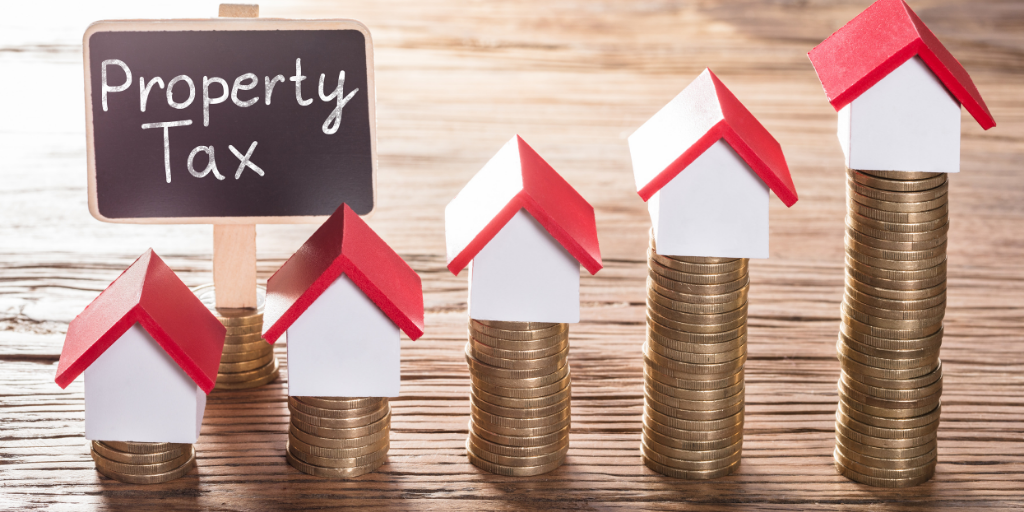Taxes can be complicated, but the good news is that it’s possible to get professional help. If you’re a property investor in South Africa for the first time, it can be a smart move to employ an accountant. In this blog post we provide information on the different types of taxes you should be aware of.
Transfer Duty
Any property bought via a sale is subject to transfer obligation. South African transfer duty rates have been progressive since March 1, 2020, at the following rates:
| Property value | Rates of tax |
| R0–R1,000,000 | 0% |
| R1,000,001–R1,375,000 | 3% on the value above R 1,000,000 |
| R1,375,001–R1,925,000 | R11,250 + 6% on the value above R1,375,000 |
| R1,925,001–R2,475,000 | R44,250 + 8% on the value above R1,925,000 |
| R2,475,001–R11,000,000 | R88,250 + 11% on the value above R2,475,000 |
| R11,000,001+ | R1,026,000 + 13% on the value above R11,000,000 |
Transfer duty is payable by the person acquiring the property and should be paid within six months from the date of acquisition to avoid incurring interest.
Tax on rental income
If you receive income from a rental property, you should declare this on your income tax. Though you will be taxed on this income, be sure to declare your expenses because certain ones – like agent fees, some insurance, and advertising – can be deducted. The SARS website has more information about tax on rental income.
Donations tax
Donations tax is a South African property tax payable on the value of any property disposed of as a donation. This is set at 20% of the property value up to R30 million, and 25% on properties valued at more. The tax is payable by the donor. It must be paid by the end of the month following the month in which the donation was made.
There are plenty of exemptions, including if the property recipient is a spouse, a segment of the government, or a public benefit organization. A donation is also exempt if the total yearly value of donations does not exceed R100,000 for individuals (R10,000 for businesses).
Capital Gains Tax
Capital Gains Tax is not a separate tax in South Africa but instead forms a part of income tax. Thus, any profit when selling an asset is subject to the same rates as South African income tax.
Related: Advice for Property Investors: Capital Gains Tax explained
Inheritance tax in South Africa
Estate duty is the name for inheritance tax in South Africa, which is a property tax payable on all estates with a net worth in excess of R3,500,000. The tax rate in South Africa for estate duty is 20% of properties worth up to R30 million and is 25% of properties worth more than this.
The South African government has agreements to avoid double death duties with Botswana, Lesotho, Swaziland, Sweden, the United Kingdom, the United States, and Zimbabwe.
Retirement property
Those who retire in South Africa pay estate duty on property, wherever it is, in the event of their death. Properties located outside of South Africa are exempt if they were acquired prior to residency or were inherited from or donated by someone who is not a South African resident.
If you need help with the management of your property investment, contact Fitzanne Estates today!
Send me more information now!
Read more:
Tax benefits property owners should know about
Advice for Property Investors: Capital Gains Tax explained
Tax implications to be aware of when investing in property
Media contact: Cathlen Fourie, +27 82 222 9198, marketing@fitzanne.co.za https://www.fitzanne.co.za/
More about Fitzanne Estates
Fitzanne Estates (Pty) Ltd is a Property Management Company who can sufficiently administer your property investment to the benefit of the Landlord, the Body Corporate and the NPC – Non-Profit Company. Services include Letting, Sectional Title Management, Full Title Management (NPC – Non-Profit Company) and Sales.
Website: https://www.fitzanne.co.za/
LinkedIn: Fitzanne Estates
Twitter: @FitzanneEstates
Facebook: @fitzanne.estates
Instagram: @fitzanneestates
YouTube: Fitzanne Estates
Podcast: Fitzanne’s Property Exchange





